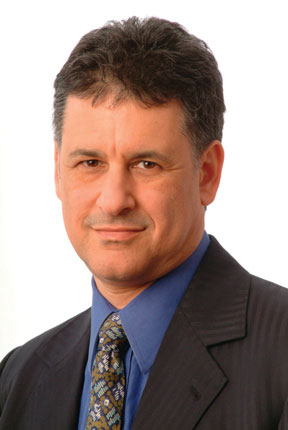Why Does Music Move Us?

Daniel Levitin
“There’s nothing in a sequence of notes themselves that creates the rich emotional associations we have with music,” says psychological scientist Daniel Levitin. So why does music trigger profound emotional experiences?
When we listen to music, our brains impose a structure on sounds — yet music affects us very differently than most patterns. “After all,” Levitin points out, “we don’t get all weepy-eyed when we experience other kinds of structure in our lives, such as a balanced checkbook or the orderly arrangement of first aid products in a drug store.”
According to Levitin, the brain works to arrange music and other sounds into a coherent whole based on experience and expectations. To understand the emotional effects of music, scientists are working to understand how these expectations turn sounds that originate outside of the brain into neural patterns inside of the brain.
Researchers have shown that music stimulates the cerebellum, a region of the brain crucial to motor control. Levitin says connections between the cerebellum and the limbic system (which is associated with emotion), “may explain why movement, emotion, and music are tied together.”
Levitin says that music is more than entertainment: “It is a regulating force for our moods.” Because of its strong ties to our emotions, we rely on music to wake us up, calm us down, entertain us, and motivate us — something a balanced checkbook can’t quite match.




Comments
That’s really interesting, I have often wondered why that is… hence a G**gle search and me ending up here.
The link between the expectation, pattern and emotion would also explain why we find some music and enjoyable experience and others not.
Music and Emotions
The most difficult problem in answering the question of how music creates emotions is likely to be the fact that assignments of musical elements and emotions can never be defined clearly. The solution of this problem is the Theory of Musical Equilibration. It says that music can’t convey any emotion at all, but merely volitional processes, the music listener identifies with. Then in the process of identifying the volitional processes are colored with emotions. The same happens when we watch an exciting film and identify with the volitional processes of our favorite figures. Here, too, just the process of identification generates emotions.
An example: If you perceive a major chord, you normally identify with the will “Yes, I want to…”. If you perceive a minor chord, you identify normally with the will “I don’t want any more…”. If you play the minor chord softly, you connect the will “I don’t want any more…” with a feeling of sadness. If you play the minor chord loudly, you connect the same will with a feeling of rage. You distinguish in the same way as you would distinguish, if someone would say the words “I don’t want anymore…” the first time softly and the second time loudly.
Because this detour of emotions via volitional processes was not detected, also all music psychological and neurological experiments, to answer the question of the origin of the emotions in the music, failed.
But how music can convey volitional processes? These volitional processes have something to do with the phenomena which early music theorists called “lead”, “leading tone” or “striving effects”. If we reverse this musical phenomena in imagination into its opposite (not the sound wants to change – but the listener identifies with a will not to change the sound) we have found the contents of will, the music listener identifies with. In practice, everything becomes a bit more complicated, so that even more sophisticated volitional processes can be represented musically.
Further information is available via the free download of the e-book “Music and Emotion – Research on the Theory of Musical Equilibration:
http://www.willimekmusic.de/music-and-emotions.pdf
or on the online journal EUNOMIOS:
http://www.eunomios.org
Enjoy reading
Bernd Willimek
Test me!! I’m serious!! Music controls me. How I think, feel and perform! Without music, I totally shut down. Please know, I’m not being dramatic. It affects me so much!
I agree with you when I dont have music it literally hurts me. It makes me feel so myself that nobody understands that. LIke music understands me when no one else can.
I believe that music affects us so much because sound is one of the greatest stimuli that alert us to the goings on of life, of utmost importance to us in survival. A babbling brook conveys that we have clean water, a baby crying alerts us to its needs, and a screaming man alarms us and gets our attention to possible life threats. If we hear a woman weeping or humming or laughing, those all mean things to us. Music puts all those sounds together in a harmonic way that emphasizes a particular alert. A weeping woman might make us sad, and music which imitates this or even compounds it, will cause more and deeper of the same. We all relate to sounds for survival. Music plays on that and the emotions that are evoked. Next time you listen to a slow violin melody, ask yourself what does it remind you of? If you can imagine a woman wailing, then you may relate the sadness of the violin to the sadness of the woman, which in real life could be yourself crying.
I like your answer the most. This makes the most sense.
As I write, it’s August 2020 during the pandemic and like the majority of others I’ve been isolated for almost 5 months. In the beginning I enjoyed the bliss of silence, then I began listening to soulful music at midnight in my garden and sometimes even sing from my rooftop balcony knowing no one could hear me. In those early months, music was like dessert .. a sweet treat, at the end of the day. Now, however it as become my lifeline. Since this has been true isolation (with a few exceptions), I found myself sinking and knew I could not risk falling into a depression so I tried listening to music in the morning and my mood lifted and soon I was dancing … sometimes a waltz or later a bit of jazz … I discovered how easy it was to change my mood by changing my music. I have learned to enjoy the pleasure of my own company ‘accompanied’ by music!
APS regularly opens certain online articles for discussion on our website. Effective February 2021, you must be a logged-in APS member to post comments. By posting a comment, you agree to our Community Guidelines and the display of your profile information, including your name and affiliation. Any opinions, findings, conclusions, or recommendations present in article comments are those of the writers and do not necessarily reflect the views of APS or the article’s author. For more information, please see our Community Guidelines.
Please login with your APS account to comment.